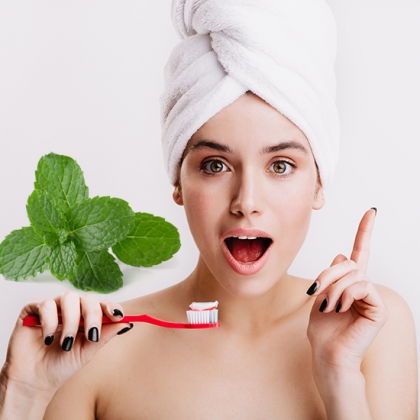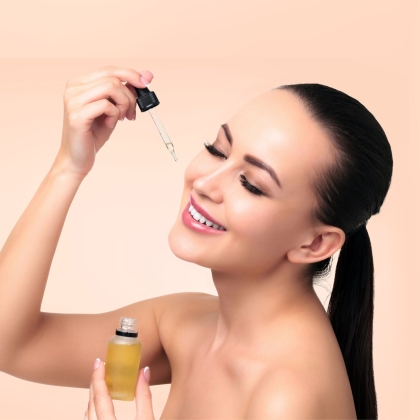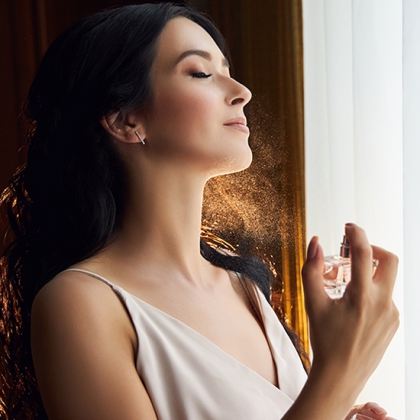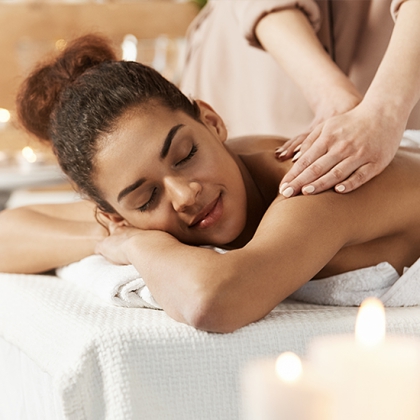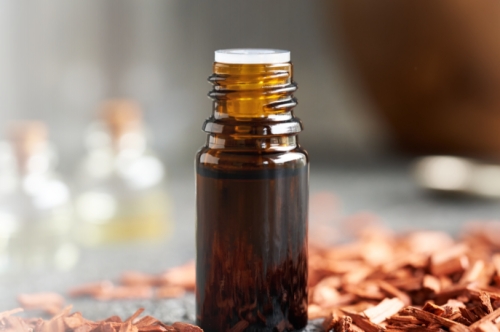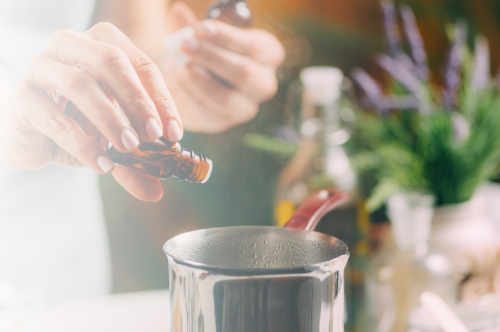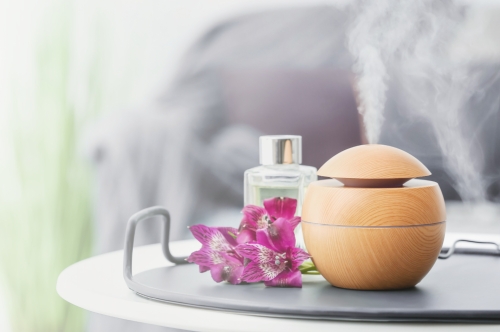Aroma Oil Uses: Discover the Versatile Applications & Benefits
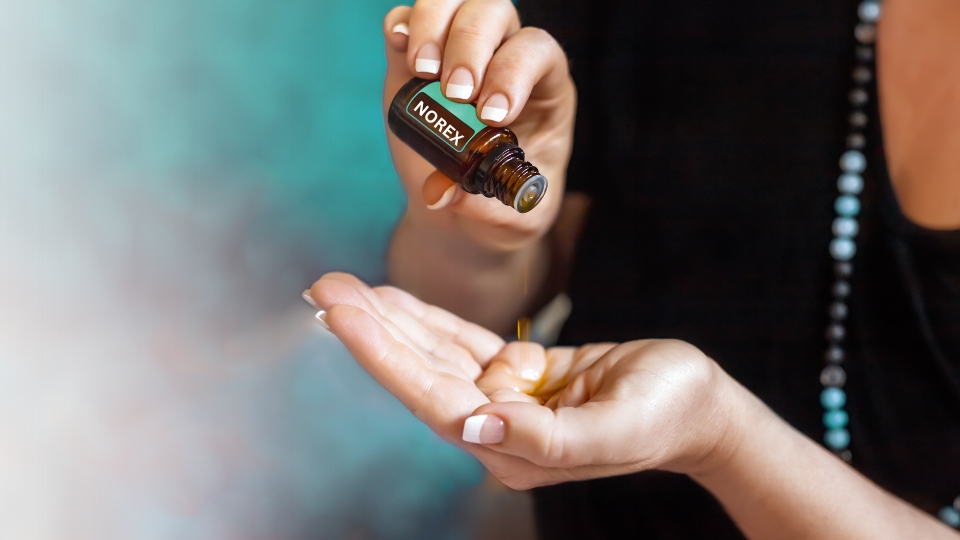
Delightful Uses of Aroma Oil
Aroma oils or fragrance oils, have found their way into homes, spas, and wellness practices as delightful and versatile tools to enhance ambiance, relaxation, and overall well-being. Derived from various plants through steam distillation or cold-press extraction, these concentrated oils capture botanicals' natural aromas and beneficial properties. Their uses span a wide spectrum, from aromatherapy to culinary delights, creating moments of sensory pleasure and therapeutic benefits.
- Aromatherapy: Aroma oils are widely embraced for their aromatherapeutic qualities. The inhalation of soothing scents like lavender, chamomile, or eucalyptus can help reduce stress anxiety and promote relaxation. By diffusing these oils, they infuse the air with calming fragrances, fostering a serene environment.
- Massage and Body Treatments: Aroma oils are often blended with carrier oils like coconut or jojoba and used for massages. The combination of touch and aroma contributes to a deeply relaxing and rejuvenating experience, addressing muscle tension and promoting a sense of calm.
- Home Fragrance: Using aroma oils in diffusers or oil burners is a delightful way to envelop living spaces in captivating scents. From cosy vanilla to invigorating citrus, aroma oils create an inviting atmosphere that sets the mood for relaxation or energy.
- Bathing Rituals: Adding a few drops of aroma oil to bathwater transforms a routine bath into a spa-like retreat. Scents like rose, ylang-ylang, or peppermint elevate the sensory experience, promoting relaxation and self-care.
- Culinary Adventures: Some aroma oils are food-grade and can be used to infuse culinary creations. A drop of lemon oil in a salad dressing or a hint of rosemary oil in a marinade can elevate dishes, imparting unique flavours without the need for fresh herbs.
- Natural Cleaning: Certain aroma oils possess antibacterial and antifungal properties, making them suitable for natural cleaning solutions. Oils like tea tree, lemon, or eucalyptus can be added to DIY cleaning products, enhancing both cleanliness and aroma.
- Skin and Hair Care: When properly diluted, aroma oils can be added to skincare products for added benefits. Lavender oil, for instance, is renowned for its soothing effects on the skin, while rosemary oil is used to invigorate the scalp and promote healthy hair.
- Mindfulness Practices: Incorporating aroma oils into meditation or yoga sessions can enhance mindfulness and relaxation. Specific scents can aid in grounding, focus, or energizing, depending on the intention of the practice.
- Sleep Support: Aroma oils like lavender and chamomile are well-regarded for their calming properties. Diffusing these scents before bedtime can create an environment conducive to restful sleep.
- Gifts and Personalized Touches: Aroma oils make thoughtful gifts, allowing individuals to curate scents that resonate with the recipient's preferences and needs.
Incorporating aroma oils into daily life offers a symphony of scents that uplift, soothe, and inspire. Whether for relaxation, invigoration, or simply creating a comforting atmosphere, these oils enrich experiences, fostering a deeper connection between mind, body, and nature's fragrant offerings.
What is Aromatherapy?
Aromatherapy, an ancient practice rooted in the use of aromatic botanical extracts, has evolved into a holistic approach that harnesses the power of scent to enhance overall well-being. It's a complementary therapy that engages the senses through the inhalation or topical application of essential oils derived from plants. This therapeutic practice combines the art of aromatics with the science of chemistry to promote physical, emotional, and psychological balance.
Historical Roots and Modern Revival
Aromatherapy has its origins in ancient civilizations such as Egypt, Greece, and China, where aromatic plants were used for rituals, healing, and beautification. In the modern era, the term "aromatherapy" was coined by René-Maurice Gattefossé in the early 20th century after he experienced the healing effects of lavender oil on his burns. Since then, aromatherapy has gained popularity as a holistic and complementary wellness practice.
Essential Oils as Therapeutic Tools
At the heart of aromatherapy are essential oils, concentrated extracts obtained from various parts of aromatic plants. The oils capture the plant's aromatic compounds with distinct therapeutic properties. For example, lavender oil is often used for relaxation, while eucalyptus oil is known for its respiratory benefits. These oils can be diffused, inhaled, or diluted for topical application.
Inhalation and Olfactory Pathways
Inhalation is a primary method of aromatherapy. When aromatic molecules from essential oils are inhaled, they travel through the olfactory system, influencing the limbic system—the brain's emotional centre. This connection between scent and emotions underlies different aromas' calming or invigorating effects.
Topical Application and Absorption
When applied to the skin, essential oils can be absorbed into the bloodstream, offering localized and systemic benefits. Dilution with carrier oils is essential to prevent skin irritation. Massages, baths, and skincare routines are common ways to apply essential oils topically.
Benefits and Applications
Aromatherapy's benefits span physical, emotional, and mental dimensions. Lavender oil can promote relaxation and sleep, while citrus oils like bergamot uplift the mood. Eucalyptus oil aids in respiratory health, and peppermint oil can ease headaches. Aromatherapy is used to manage stress, anxiety, pain, and inflammation, and even as a supportive therapy alongside conventional medical treatments.
Considerations and Precautions
Though aromatherapy is generally safe, precautions must be taken. Essential oils are potent and should be used according to recommended guidelines. Some oils are contraindicated during pregnancy or for specific medical conditions. It's crucial to source high-quality oils from reputable brands to ensure purity and therapeutic benefits.
Individualization and Personalization
Aromatherapy is a deeply personalized practice. Individuals respond differently to scents based on their experiences and preferences. What soothes one person may invigorate another. A skilled aromatherapist can tailor blends to suit specific needs and goals.
Holistic Wellness and Mind-Body Connection
Aromatherapy embodies a holistic approach to wellness, acknowledging the interconnectedness of mind, body, and spirit. The practice encourages self-awareness, self-care, and the cultivation of mindfulness. Through the transformative power of scent, aromatherapy invites individuals to engage in self-discovery and find harmony amidst life's demands.
In sum, aromatherapy stands as a multi-faceted therapeutic practice that bridges ancient wisdom with contemporary science. Its aromatic tapestry weaves through the senses, influencing emotions, physiology, and the human experience. From relaxation to revitalization, aromatherapy serves as a fragrant path to holistic well-being, inviting individuals to explore the world of scents and discover their profound impact on their journey toward balanced living.
Uses and Benefits of Aroma Oil
Derived from nature's botanical treasures, these concentrated oils capture the essence of plants and their therapeutic properties. With each drop, aroma oils unlock a world of possibilities, ranging from relaxation to revitalization.
- Aromatherapy for Relaxation: Aroma oils are synonymous with aromatherapy, a practice centred on harnessing scent for relaxation. Diffusing calming oils like lavender, chamomile, and bergamot creates an ambience of tranquillity, soothing nerves and reducing stress. Inhaling these gentle fragrances induces a sense of calmness, supporting emotional equilibrium.
- Skincare and Beauty: Aroma oils are esteemed allies in skincare. Oils like tea tree, lavender, and rose offer antibacterial, soothing, and rejuvenating properties. Incorporating them into skincare routines or adding a few drops to a bath can promote healthy, radiant skin while enhancing the overall spa-like experience.
- Sleep Enhancement: Aroma oils can promote restful sleep. Lavender, known for its sedative properties, is popular for creating a serene bedtime ritual. Diffusing lavender oil or applying it topically before sleep can encourage deeper, more rejuvenating slumber.
- Mood Upliftment: Aroma oils possess the power to uplift the mood. Citrus oils such as orange and lemon evoke a sense of freshness and positivity. Inhaling their invigorating scents can dispel feelings of lethargy and bring a burst of energy.
- Respiratory Support: Aroma oils like eucalyptus and peppermint offer respiratory benefits. Their decongestant and anti-inflammatory properties make them excellent choices for combating colds, congestion, and sinus discomfort. Inhalation or steam inhalation with these oils can provide relief.
- Stress Relief: The soothing scents of aroma oils contribute to stress relief. Oils like frankincense, sandalwood, and ylang-ylang have been used for centuries to create an atmosphere of tranquillity, grounding the mind and fostering emotional balance.
- Focus and Concentration: Certain aroma oils like rosemary and peppermint can enhance cognitive function and concentration. Diffusing these oils during work or study sessions can improve focus and mental clarity.
- Pain Management: Aroma oils like chamomile, ginger, and marjoram possess analgesic properties that can help alleviate pain. Massaging these oils onto sore muscles or adding them to a warm compress can offer relief from discomfort.
- Stress Relief: The soothing scents of aroma oils contribute to stress relief. Oils like frankincense, sandalwood, and ylang-ylang have been used for centuries to create an atmosphere of tranquillity, grounding the mind and fostering emotional balance.
- Culinary Delights: Aroma oils can elevate culinary creations when food-grade and used sparingly. Oils like basil, oregano, and lemon add distinctive flavors to dishes without the need for fresh herbs, adding a gourmet touch to home-cooked meals.
Aroma oils transcend mere fragrance, touching every aspect of life with their versatility and potency. From revitalizing tired spirits to enhancing physical well-being, their uses are as diverse as the scents they carry. Embracing aroma oils as trusted companions enriches daily rituals, connecting individuals with the natural world and inviting them to embark on a fragrant journey toward holistic vitality.
Aroma Oils at Norex
Norex stands as a beacon of excellence when it comes to offering the finest aroma oils that enrich the holistic well-being journey of its patrons. With an unwavering commitment to quality and an understanding of the profound impact of scent on wellness, Norex takes the selection and utilization of aroma oils to a pinnacle of excellence.
Its rigorous sourcing process shows Norex's dedication to curating the best aroma oils. Each oil is chosen with meticulous care, ensuring that it embodies the purity and potency required to deliver genuine therapeutic benefits. The collection spans a diverse range of oils, each selected for its unique properties that contribute to relaxation, rejuvenation, and balance.
Incorporating these aroma oils into Norex's offerings is a seamless blend of science and art. Trained professionals adeptly craft custom blends for massages, facials, and wellness rituals, tailoring experiences to address individual needs and preferences. This personalized approach guarantees that every guest receives an experience that resonates on both sensory and therapeutic levels.
Norex's dedication to the best aroma oils extends beyond its services; it's embedded in the very ambience of its spaces. From welcoming scents that envelop visitors upon arrival to the delicate infusion of aroma oils into linens, Norex ensures that the entire environment supports relaxation and tranquillity.
In essence, Norex's commitment to providing the best aroma oils is a testament to its pursuit of excellence in the realm of holistic wellness. By offering a sensory journey that combines the art of scent with the science of well-being, Norex consistently delivers an unparalleled experience that rejuvenates the mind, body, and soul.
Buy Aroma Oils from Norex
Frequently Asked Questions
1. Which aroma oils are best for relaxation?
Lavender, chamomile, and bergamot are among the best aroma oils for relaxation due to their calming and soothing properties.
2. How do I use aroma oils for aromatherapy?
For aromatherapy, dilute a few drops of aroma oil in a diffuser or carrier oil, then inhale or apply topically for relaxation and well-being.
3. Are aroma oils safe to use during pregnancy?
Aroma oils should be used with caution during pregnancy. Consult a healthcare professional before using them to ensure safety.

